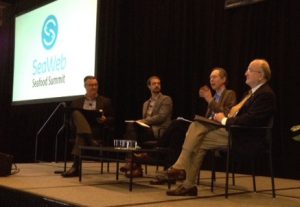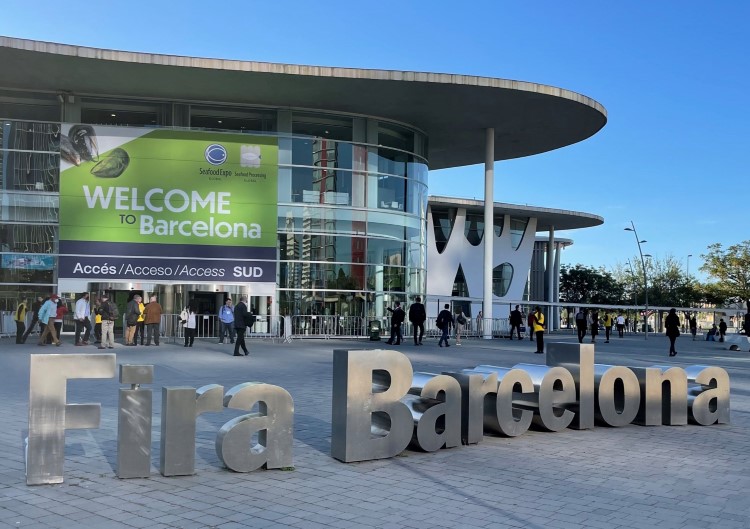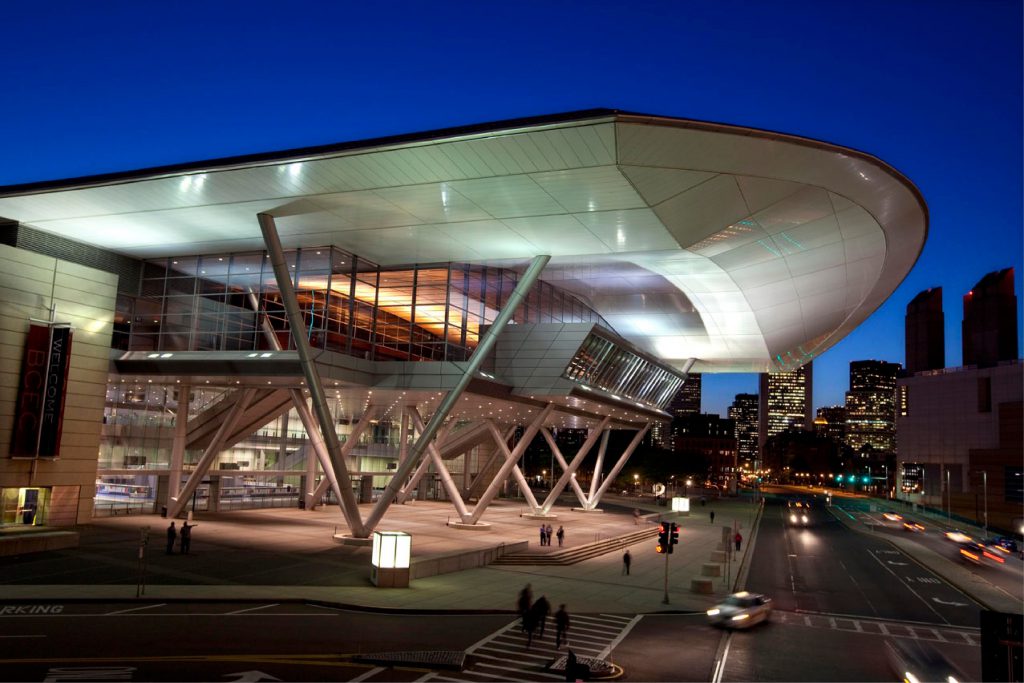GAA Addresses Aquaculture’s Future At SeaWeb Seafood Summit
Global Aquaculture Alliance Executive Director Wally Stevens was among three panelists participating in the opening plenary on the future of aquaculture at the three-day SeaWeb Seafood Summit at the Hyatt Regency in New Orleans, Louisiana, USA, on Feb. 9.
Together with Dr. Michael Rubino, director of the National Oceanic and Atmospheric Administration’s office of aquaculture, and chef/author Barton Seaver, Stevens talked about the aquaculture’s future in a session titled “Impact of Aquaculture on World Protein Markets.” The session was moderated by William DiMento, corporate director of sustainability for High Liner Foods.
 Stevens (pictured on far right) focused on the role of education and collaboration in meeting the world’s seafood needs. Currently, aquaculture represents about half of global seafood consumption. By 2030, it’s projected to represent 62%, according to the World Bank. That’s an additional 32 million metric tons of seafood—and an additional 1.5 billion mouths to feed—and aquaculture is the only sustainable means of growing the world’s seafood supply, said Stevens.
Stevens (pictured on far right) focused on the role of education and collaboration in meeting the world’s seafood needs. Currently, aquaculture represents about half of global seafood consumption. By 2030, it’s projected to represent 62%, according to the World Bank. That’s an additional 32 million metric tons of seafood—and an additional 1.5 billion mouths to feed—and aquaculture is the only sustainable means of growing the world’s seafood supply, said Stevens.
“How can we support you in your journey toward responsible aquaculture?” Stevens asked an audience of more than 400.
Stevens used the occasion to announce the launch of a Responsible Aquaculture Foundation (RAF)-administered initiative to finance a range of projects to further responsible aquaculture and ultimately increase the availability of certified seafood production worldwide. RAF is GAA’s charitable arm.
Stevens also identified the multiple challenges that the aquaculture community must address if it’s to come up with additional 32 million metric tons of product between today and 2030. He pointed to a survey at GAA’s GOAL 2014 conference that found that nearly half of attendees identified animal health, particularly disease, as the No. 1 factor impeding aquaculture’s growth.
“Disease continues to be a very dramatic challenge facing the future of aquaculture,” said Stevens.
Aquaculture’s future was again address during a post-plenary breakout on Feb. 9 titled “How Does Aquaculture Meet Growing Needs in a Sustainable Manner?”
The session featured Dan Lee, Best Aquaculture Practices Standards Coordinator; Sebastian Belle, executive director of the Maine Aquaculture Association; Dave Little, a professor at the University of Stirling’s Institute of Aquaculture; Chris Ninnes, CEO of the Aquaculture Stewardship Council; and Nell Halse, VP of communications for Canada’s Cooke Aquaculture. Belle and Little are also members of GAA’s Standards Oversight Committee. The 75-minute session was moderated by Steven Hedlund, GAA’s communications manager.
The question-and-answer discussion centered on three subjects: Where do the greatest opportunities for improvement in aquaculture production lie? What is the role of education and technology in farming seafood responsibly? And what species, geographies and production types will experience the greatest growth?
Also among the speakers at the Seafood Summit was Ned Bell, executive chef of the Four Seasons Vancouver and its YEW restaurant, who participated in a session on Feb. 10 titled “Building Consumer Demand for Sustainable Seafood in the Marketplace.” The Four Seasons Vancouver is hosting GAA’s GOAL 2015 conference from Oct. 26 to 29.
The Seafood Summit is co-organized by SeaWeb and Diversified Communications. The 2016 Seafood Summit will be held in Malta.



